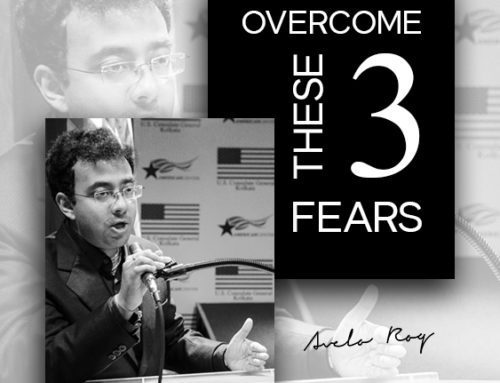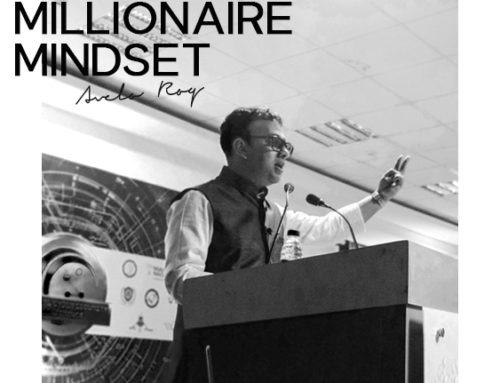I say unfair advantage because it’s like getting a solution manual for an exam…way before the exam. I will take you on a tour of the expectations hidden in your interviewer’s mind and help you address them like a mind reader!
Get Referred, Use LinkedIn
I see so many people blindly applying on the career sections of various company websites hoping to get a response. Little do they know that hardly any of the applications and resumes will be read.
The process of hiring is so expensive that for most businesses it is not worth taking a risk hiring an unknown person without credible work history and validated work ethics.
So referrals are incredibly important. If I trust your friend and your friend recommends you, then I am automatically inclined to trust you.
LinkedIn is a great tool for referrals. Did you know 89% of all recruiters report to having hired someone through LinkedIn?
 It costs around $400 for a company to post a job on LinkedIn, so these job applications are not going to trash. Moreover, you can see who posted it so that you can directly connect with the hiring manager or get referred by a common connection.
It costs around $400 for a company to post a job on LinkedIn, so these job applications are not going to trash. Moreover, you can see who posted it so that you can directly connect with the hiring manager or get referred by a common connection.
If you don’t have a common connection, look up:
- Someone who might be working in that company or
- Someone who might be connected to someone working in that company or
- Someone who went to your university or part of a social group that you belong to
Just find some form of a common connection and request him/her for a referral to the hiring manager for the job you are looking to apply for.
Note: If you don’t have a LinkedIn account, create one NOW and add everyone you know. Your most valuable connections would be people who have a large network and are able and willing to help you.
Attitude matters more than you think
Matt Maloney, CEO and cofounder of grubhub.com once shared with me that when hiring someone, a college degree doesn’t matter much to him. It just tells him that the person can start and finish a project.
Actually it’s not just Matt. As it turns out, most hiring managers don’t really care about where you went to school or the degree you earned.
According to Christine Romans, CNN chief business correspondent and author of “Smart is the New Rich: Money Guide for Millennials,” qualities such as integrity and professionalism are what employers value the most.
“These used to be called ‘soft skills,’ but workplace experts and human resources managers say there is nothing soft about them at all,” Romans writes in her new book. “The hard truth is that companies need talent that can collaborate and lead. These skills are critical, and you can’t get a degree in them.”
Be Confident with a smile
Confidence is contagious. If you are confident about your skills and abilities, others will also develop confidence in you. But don’t overdo it to the point where it looks like arrogance. No one likes to work with arrogant people.
So maintain a sweet smile. But there is a difference between a genuine and a fake smile. A genuine smile is detected by looking at the eyes.

The human brain is wired to pick up on these clues. A fake smile can invoke doubts about you whereas a genuine smile makes you likable.
If I like you, I want to believe you.
Demonstrate Your Skills
Sometimes you might be asked to demo your skills on a white board or on your computer. But even if not asked be sure to share solid examples where your expertise or skills are validated by a third party.
Remember, the interviewer is thinking, “I really want you to stand out”.
Best is to show some work samples if you have any. You could also highlight winning a hackathon or a competition, building or creating something that was used by a third party, a project that you turned in to a real project, something you worked on at an internship, etc.
In other words, show them what you have done, built, lead, created and honed in your past jobs/projects and how they relate to the position you are seeking.
Example: “I did the user interface design for a medical app which required collaborating with a team of engineers, doctors and parents of children with autism. I learned so much. It was incredible to see these kids smile while using my app.”
This simple statement is packed with information about you. It tells me that you have the technical skills to design a user interface and you can collaborate with a diverse team to create a meaningful output. The last sentence tells me about your passion for your work. You actually liked what you did. Adding this emotional touch to your statement makes you likable.
Why else do you think politicians kiss babies?
Be Likable
Making a great first impression and establishing a real connection is everything. Smile, make eye contact, be enthusiastic, sit forward in your chair, use the interviewer’s name…be yourself but be the best version of yourself possible.
We all want to work with people we like – and who like us. Use that basic fact to your advantage. Surprisingly few candidates do.
Use body language to your advantage. How you sit, stand, and move can sometimes matter more than what you say. You can easily improve your body language – it just takes a little thought and preparation.
In this popular TED talk by social psychologist Amy Cuddy, she shows how “Power Posing” — standing in a posture of confidence, even when we don’t feel confident — can affect testosterone and cortisol levels in the brain, and might even have an impact on our chances for success.
[ted id=”1569″][/ted]The right postures and gestures can help you come across as smart, open, engaging, less stressed… all of which contributes to making an awesome impression.
Leave a Lasting Impression
A sad truth of interviewing is that interviewers often don’t recall a lot about the candidate. Unfair? Sure. Reality? Absolutely.
That means the more people that are interviewed for a job, the more likely the interviewers are to remember certain candidates by impressions rather than by a long list of facts.
So when the interviewers meet to discuss and decide on the best candidate, they might initially refer to someone as, “the guy with the purple shoes,” or “the woman who speaks four languages.”
In short, you are remembered by “hooks” – whether flattering or unflattering – so use that fact to your advantage. While your hook could be your clothing, an outside interest, or an unusual fact about your upbringing or career, a much better hook is the project you pulled off in half the expected time or the improbably huge sale you made.
Instead of letting the interviewers choose how they’ll remember you, make sure you give them one or two notable reasons to never forget you. Here is one way to do it:
Generally at the end of every interview the interviewer asks, “Do you have any questions for us?”
Mind you this is a very important moment to create a lasting impression as most people remember what you said last, rather than what you started with.
Here are a few very insightful questions to ask that will impress your interviewer:
- What do you expect me to accomplish in the first 60 to 90 days?
- What are the one or two things that really drive results for the company?
- What are the common attributes of your top performers?
All the best!
The above tips will certainly help you get an edge over others. Don’t worry, you don’t have to be an expert. You will see results by trying even a little. The more you put in the more you get.
I am always here to answer any questions you might have. I am also hiring marketing interns for this blog. Shoot me an email if you are interested.







Thank you for sharing your insights, Ajeeta! These are very helpfull!